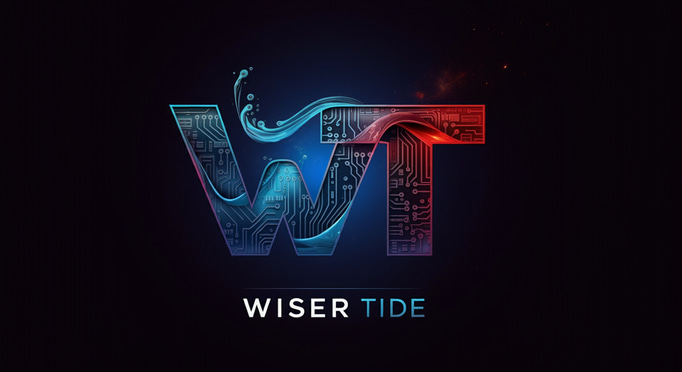Bridging Ethics and Trust in Artificial Intelligence
ETHICS & GOVERNANCE
Konrad Pazik
3/26/20255 min read


Bridging Ethics and Trust in Artificial Intelligence: A New Way Forward
Artificial Intelligence (AI) is becoming a larger part of our lives every day, from helping doctors diagnose illnesses to deciding what shows we watch on streaming platforms. But as AI grows more powerful, it also raises important questions: Can we trust it? Is it fair? Does it treat everyone equally? These questions are at the heart of a fascinating discussion about how to make AI systems not only intelligent but also ethical and trustworthy.
A recent article explores a new way to connect two key ideas: ethics (ensuring AI is fair and just) and epistemology (ensuring AI is accurate and reliable). The authors propose a framework they call "epistemology-cum-ethics," which focuses on embedding fairness and trust into AI systems from the very beginning.
The Problem: AI as a "Black Box"
One of the biggest challenges with AI is that it often works like a "black box." It makes decisions, but we don’t always know how or why. This lack of transparency can lead to problems, such as biased decisions or unfair outcomes. For example, an AI system used in hiring might unintentionally favour certain groups over others because of hidden biases in the data it was trained on.
The authors argue that instead of just trusting the results of an AI system, we need to trust the process that creates those results. This means making the entire process—from design to implementation—clear, fair, and open to scrutiny.
The Solution: A "Glass Box" Approach
The authors suggest thinking of AI as a "glass box" instead of a black box. A glass box is transparent and allows people to see how decisions are made. But transparency alone isn’t enough. The process of creating and using AI must also include ethical considerations at every step. This means asking questions such as:
Are the algorithms fair to everyone, regardless of their background?
Are the values guiding the AI system clear and aligned with societal needs?
Can both experts and non-experts understand and evaluate the system?
By focusing on the entire process, the authors believe we can create AI systems that are not only technically reliable but also ethically sound.
Why Ethics Matter in AI
Ethics in AI isn’t just about avoiding harm—it’s about actively promoting good values. For example, an AI system designed to help with loan approvals shouldn’t just aim for accuracy; it should also ensure fairness, so it doesn’t reinforce existing inequalities. The authors argue that fairness, safety, and transparency should be built into AI systems from the start, not added as an afterthought.
This approach also recognises that different people—experts, users, and the general public—have different needs and levels of understanding. By making AI systems more transparent and inclusive, we can ensure that everyone has a voice in how these technologies are developed and used.
The Role of Institutions and Accountability
The authors also highlight the importance of institutions in ensuring AI systems are ethical and trustworthy. For example, regulatory bodies, professional organisations, and companies all have a role to play in setting standards and holding AI developers accountable. This institutional support can help bridge the gap between experts and non-experts, making it easier for everyone to trust AI systems.
Why This Matters
AI has the potential to transform our world in amazing ways, but it also comes with risks. If we don’t address issues such as bias, fairness, and transparency, we risk creating systems that harm people or reinforce existing inequalities. By combining ethics and trust into the design process, we can create AI systems that not only work well but also reflect the values we care about as a society.
This "glass box" approach is a step towards a future where AI is not just a tool but a responsible partner in shaping a better world. It reminds us that technology is never neutral—it reflects the choices and values of the people who create it. By making those choices thoughtfully and ethically, we can ensure that AI serves everyone, not just a select few.
The integration of ethics and trust into Artificial Intelligence (AI) systems, as discussed in the article, has significant implications for the UK, particularly as the country positions itself as a global leader in AI development and regulation. Here are some key ways this impacts the UK:
1. Shaping AI Regulation and Policy
The UK government has been actively working on AI regulation, with a focus on ensuring that AI systems are safe, fair, and transparent. The "glass box" approach, which emphasises embedding ethics and trust into the design process, aligns closely with the UK’s ambitions to create a regulatory framework that balances innovation with public trust. For example, the UK’s AI White Paper (published in 2023) highlights the importance of accountability and fairness in AI systems. Adopting this framework could help the UK lead the way in setting global standards for ethical AI.
2. Building Public Trust in AI
For AI to be widely adopted in the UK, public trust is essential. Issues such as biased algorithms in hiring, loan approvals, or policing have already raised concerns about fairness and transparency. By ensuring that AI systems are designed with ethical considerations from the start, the UK can address these concerns and build confidence among its citizens. This is particularly important in sectors like healthcare, where AI is being used to assist in diagnoses and treatment planning, and in public services, where fairness and accountability are critical.
3. Supporting Inclusive Innovation
The UK is a diverse society, and ensuring that AI systems are fair and inclusive is vital. The "glass box" approach encourages the inclusion of different perspectives—both expert and non-expert—when designing and assessing AI systems. This could help the UK avoid the pitfalls of biased AI and ensure that these technologies work for everyone, regardless of their background. It also aligns with the UK’s broader goals of reducing inequality and promoting social justice.
4. Strengthening the UK’s AI Industry
The UK is home to a thriving AI industry, with companies and research institutions at the forefront of innovation. By adopting ethical AI practices, UK businesses can gain a competitive edge in the global market. Ethical AI is increasingly becoming a priority for international organisations and consumers, and companies that demonstrate a commitment to fairness and transparency are likely to attract more investment and partnerships.
5. Preparing for Future Challenges
As AI systems become more integrated into everyday life, the UK will face new challenges, such as managing the unintended consequences of AI and addressing the risks of "black box" systems. The "glass box" approach provides a proactive way to address these challenges by focusing on the entire lifecycle of AI systems, from design to implementation and use. This could help the UK avoid costly mistakes and ensure that AI technologies are used responsibly.
6. Enhancing Institutional Accountability
The UK already has strong institutions, such as the Information Commissioner’s Office (ICO), which oversees data protection and privacy. The emphasis on institutional accountability in the "glass box" approach could further strengthen these organisations by encouraging them to play a more active role in monitoring and regulating AI systems. This would ensure that ethical standards are upheld and that the public has recourse if AI systems fail to meet these standards.
7. Global Leadership in Ethical AI
The UK has an opportunity to position itself as a global leader in ethical AI. By adopting and promoting the "glass box" approach, the UK can influence international discussions on AI governance and set an example for other countries. This leadership could also boost the UK’s reputation as a hub for responsible innovation, attracting talent and investment from around the world.
Conclusion
The "glass box" approach to AI, which integrates ethics and trust into the design and development process, offers a roadmap for the UK to address the challenges and opportunities of AI. By prioritising fairness, transparency, and accountability, the UK can build public trust, support inclusive innovation, and strengthen its position as a global leader in ethical AI. This approach not only benefits the UK’s economy and society but also ensures that AI technologies are used responsibly to create a fairer and more equitable future.
Connect
Empowering local businesses through tailored AI solutions.
Innovate
Transform
07543 809686
© 2025. All rights reserved.


